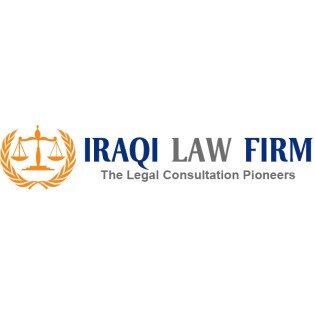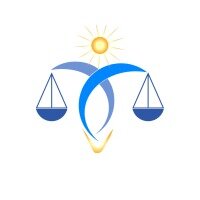Best Communications & Media Law Lawyers in Iraq
Share your needs with us, get contacted by law firms.
Free. Takes 2 min.
Or refine your search by selecting a city:
List of the best lawyers in Iraq
About Communications & Media Law in Iraq
Communications & Media Law in Iraq encompasses the regulations and legal issues related to broadcasting, telecommunications, digital media, and information technology. This field addresses the complexities of modern communication in both traditional media such as television and radio, as well as digital platforms such as the internet and social media. With the rapid growth of technology and media industries, Iraq has been focusing on developing comprehensive legal frameworks to manage these sectors effectively, while ensuring freedom of expression and access to information are maintained.
Why You May Need a Lawyer
Individuals and organizations may require legal assistance in the field of Communications & Media Law for various reasons, including:
- Regulatory Compliance: Navigating local regulations related to broadcasting and telecommunications to ensure adherence to legal standards.
- Intellectual Property: Protecting digital content and media assets from unauthorized use or infringement.
- Privacy Concerns: Ensuring compliance with privacy laws and managing risks related to data protection.
- Defamation and Libel: Addressing any issues arising from false statements that harm reputation through various media channels.
- Contractual Agreements: Drafting and reviewing contracts related to media and communication services.
- Conflict Resolution: Handling disputes related to media content, broadcasting rights, or telecommunications services.
Local Laws Overview
Iraq's communications and media landscape is governed by a number of laws and regulations aimed at managing the industry's growth while protecting public interests. Key aspects include:
- The Communications and Media Commission (CMC): The primary regulatory body overseeing the sector, responsible for issuing licenses and ensuring compliance with national policies and international standards.
- Telecommunications Law: Sets the framework for the operation of telecommunications services, addressing issues related to networks, operators, and user rights.
- Media Law: Covers regulations concerning broadcasting, content creation, and distribution, with an emphasis on ensuring media freedom and diversity.
- Data Protection Regulations: Provide guidelines on managing personal data to protect privacy, especially with the rise of digital platforms.
Frequently Asked Questions
What is the role of the Communications and Media Commission (CMC) in Iraq?
The CMC is responsible for regulating the communications and media sectors in Iraq, including issuing licenses, ensuring compliance with regulations, and promoting fair competition while protecting consumer interests.
How can businesses ensure compliance with Iraqi communications laws?
Businesses should regularly consult with legal professionals specializing in Communications & Media Law to stay updated on regulations, ensure proper licensing, and adhere to reporting and operational requirements.
What steps can be taken to protect intellectual property in the media sector?
Companies can secure copyrights, trademarks, or patents where applicable, and implement compliance programs to monitor and enforce intellectual property rights against unauthorized use or piracy.
How is privacy protected under Iraqi media law?
Privacy is safeguarded through specific data protection regulations that require businesses to obtain consent before using personal data and to secure data against unauthorized access or breaches.
What are the legal implications of defamation in Iraqi media?
Defamation, including libel and slander, is addressed through civil and criminal laws in Iraq. Legal action can be taken against individuals or media outlets that publish false information harming another's reputation.
Are there any restrictions on digital content distribution in Iraq?
Like many countries, Iraq has regulations to control content distribution, especially concerning hate speech, incitement to violence, or obscenity. Legal counsel can assist in understanding and navigating these restrictions.
What type of license is required for operating a broadcasting service in Iraq?
A broadcasting license from the CMC is necessary to legally operate radio or television services. This license is contingent upon compliance with Iraqi laws and regulations governing media and broadcasts.
How do telecommunications laws affect internet service providers (ISPs) in Iraq?
ISPs must adhere to Iraqi Telecommunications Law which includes regulations related to licensing, service quality, pricing, and user data privacy to ensure they operate fairly and transparently.
What legal recourse is available for resolving contractual disputes in media agreements?
Parties can seek arbitration or litigation in Iraqi courts or employ alternative dispute resolution methods as outlined in their contracts, with assistance from legal professionals.
Are there special regulations for foreign media entities operating in Iraq?
Foreign media must comply with Iraqi laws and regulations including registration with the relevant authorities and adherence to content and operational standards as set forth by the CMC.
Additional Resources
Individuals seeking assistance in Communications & Media Law can consult the following resources:
- Communications and Media Commission (CMC): The primary regulatory body for all media and communication activities in Iraq.
- Ministry of Communications: Offers guidelines and updates related to telecommunications infrastructure and services.
- Legal Aid Organizations: Offer support for individuals needing legal advice or representation in media-related matters.
- Professional Legal Firms: Specialize in Communications & Media Law and can provide tailored advice and services.
Next Steps
If you require legal assistance in Communications & Media Law, consider the following steps:
- Identify Your Needs: Assess the specific legal issue you're facing to find the appropriate type of legal counsel.
- Consult with an Expert: Reach out to lawyers or law firms specializing in Communications & Media Law to discuss your case.
- Gather Documentation: Prepare all necessary documents related to your issue, such as contracts, correspondence, or licenses.
- Stay Informed: Keep updated on the latest changes in regulations by following announcements from the CMC and relevant governmental bodies.
Lawzana helps you find the best lawyers and law firms in Iraq through a curated and pre-screened list of qualified legal professionals. Our platform offers rankings and detailed profiles of attorneys and law firms, allowing you to compare based on practice areas, including Communications & Media Law, experience, and client feedback.
Each profile includes a description of the firm's areas of practice, client reviews, team members and partners, year of establishment, spoken languages, office locations, contact information, social media presence, and any published articles or resources. Most firms on our platform speak English and are experienced in both local and international legal matters.
Get a quote from top-rated law firms in Iraq — quickly, securely, and without unnecessary hassle.
Disclaimer:
The information provided on this page is for general informational purposes only and does not constitute legal advice. While we strive to ensure the accuracy and relevance of the content, legal information may change over time, and interpretations of the law can vary. You should always consult with a qualified legal professional for advice specific to your situation.
We disclaim all liability for actions taken or not taken based on the content of this page. If you believe any information is incorrect or outdated, please contact us, and we will review and update it where appropriate.
Browse communications & media law law firms by city in Iraq
Refine your search by selecting a city.













